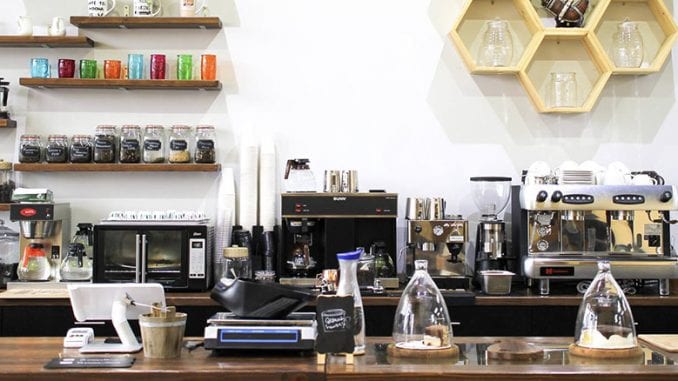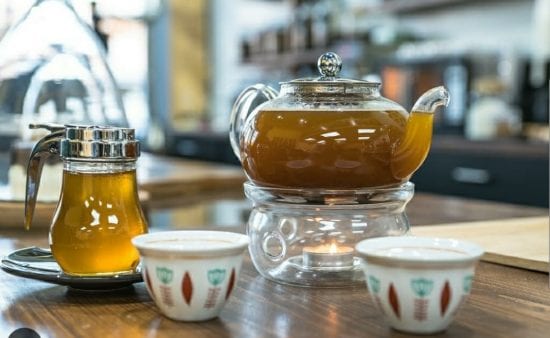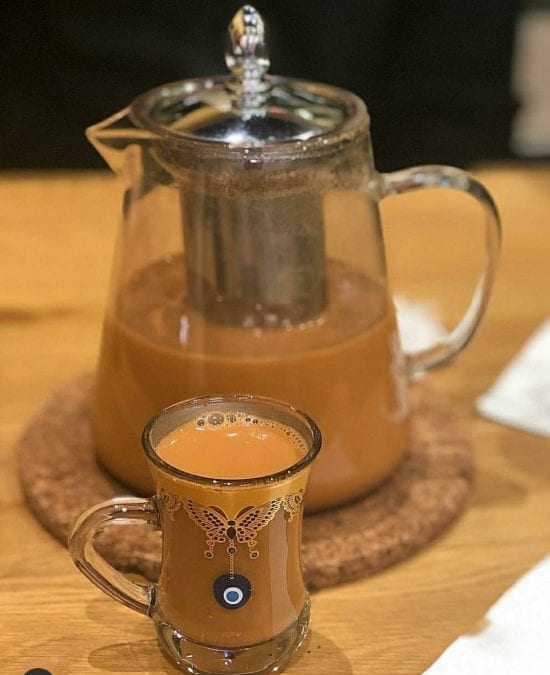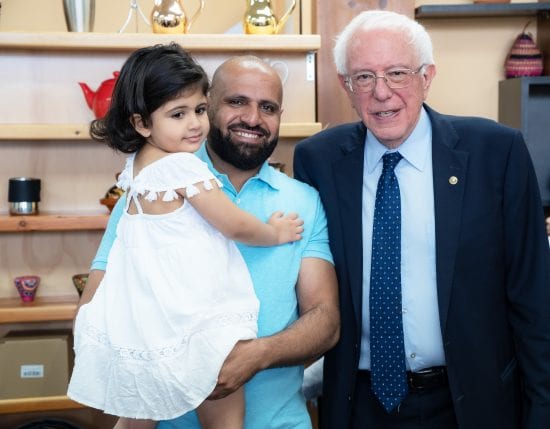
We get to know Ibrahim Alhasbani, the owner of Dearborn, Mich.’s only Yemeni coffee house, Qahwah House.
BY SARAH BENCE
SPECIAL TO BARISTA MAGAZINE ONLINE
Photos courtesy of Qahwah House
In the outskirts of Detroit in Dearborn, Mich., you will find the world’s finest Yemeni coffee. Here, you’ll also meet Ibrahim Alhasbani—the founder, owner, roaster, and barista behind Qahwah House, which means “coffee” in Arabic.
A Yemeni immigrant, Ibrahim has been roasting and brewing coffee in Dearborn for two years. But not just any coffee—he imports all his beans directly from his own family farm that he grew up on in Yemen. With political disturbances in Yemen, Ibrahim has had his fair share of challenges in importing, but he perseveres.
Add to that the belief that Yemen is the origin of the first coffee plant in the world, and you have a story rife with symbolism. It is said that coffee originated from Yemen’s Port of Mokha in the 14th century, and for nearly 200 years after that, Yemen remained the sole distributor of coffee.
But for the coffee that Ibrahim Alhasbani pours at Qahwah House in Dearborn, “origin” means much more than where the beans came from; it also refers to his own origin story. Just as his coffee beans must make the journey from Yemen to the United States, so did Ibrahim Alhasbani. And although there are challenges in both journeys, the result is worth it. The passion and connection behind each cup of coffee served at Qahwah House go beyond what many baristas can offer.

Sarah Bence: What was it like growing up on a coffee farm in Yemen?
Ibrahim Alhasbani: I didn’t feel it when I was a kid, but I know for sure now how lucky I was to see the process of growing coffee beans, roasting, and making coffee using natural methods. It’s something special not everyone gets to witness.
Why did you decide to open a Yemeni coffee house in Dearborn?
I was living in New York, but when I got married, I moved to Dearborn because my wife is from Michigan, and she preferred to be close to her family. Our grand opening was January 2018, and we had a soft opening two months before.
How has Qahwah House and your Yemeni coffee been received by the community in Dearborn?
Dearborn has a diverse population, and all were very supportive when I first opened and still are! I’m actually very glad that I opened my first coffee shop here in Dearborn! I did something different and unique in that I use only Yemeni coffee beans. That’s why the public in Dearborn, and many different cities in Michigan, love what I create for them. Because of their support, Qahwah House has had all this success.

The third-wave coffee movement emphasizes the importance of honoring origin. Can you tell us about Yemen’s links to the origin of coffee?
Yemen is the birthplace for coffee. It is known to have some of the world’s best coffee. The coffee there is grown organically in higher altitudes and prepared using natural methods. That’s why Yemeni coffee beans get the highest grade.
What is unique about the Yemen style of coffee? Do you use a special roasting technique or preparation methods?
Here at the coffee shop, I use the same recipes my ancestors and family used to prepare the traditional Yemeni drinks. We use spices such as cardamom, ginger, and cinnamon in many of our drinks. People from all over Michigan and the United States come to enjoy our coffee, and many comment that it’s like nothing they’ve ever tried before.

What are some challenges in sourcing your coffee beans, and how do you overcome them?
With this situation in Yemen it’s hard to bring coffee beans to the U.S.A. It’s a challenge, but you have to take a risk. I have my family there in Yemen helping me.
How would you like to see Qahwah House grow and develop in the future?
I want to see Qahwah House everywhere around the world. That’s why I have a plan to improve the business and start the process for franchising.

If you could tell the public one thing about Yemeni coffee, what would it be?
Yemeni coffee is known to be one of the best coffees in the world. What makes it unique is the natural process used to grow it, and all the natural and rich flavors that you can taste in every sip. My advice is to always drink it black so you can taste our delicious coffee, not the cream and sugar.

ABOUT THE AUTHOR
Sarah Bence is a travel writer based in Michigan. She has bylines in publications such as Barista Magazine, Unearth Women, World Nomads, and more. She is an avid traveler, and her favorite way to explore a new place is through its local coffee scene.

